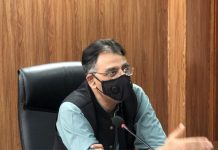
Chief Justice of Pakistan Yahya Afridi’s letter, along with minutes of judges’ committee meetings, has revealed a clear split among Supreme Court judges on hearing petitions against the 26th Constitutional Amendment. The documents show differences over whether the case should go before a full court or a constitutional bench, with the dispute spanning from October 31, 2024, to May 29, 2025. The matter gained attention when Justices Mansoor Ali Shah and Munib Akhtar, during the CJP’s absence, scheduled a full court hearing for November 4, 2024.
CJP Afridi objected to this decision, stating that the Constitution only allows petitions under Article 184(3) to be heard by a constitutional bench. He said that after personally consulting all 13 Supreme Court judges, nine supported his stance in favour of a constitutional bench. According to him, convening a full court was not only unnecessary but could also damage judicial harmony and open the court to unwanted public criticism.
The released minutes also included CJP Afridi’s written reply to Justice Mansoor’s earlier letter. In his response, he cited constitutional provisions, including Article 191A, to justify that only a constitutional bench could hear the matter. He stressed that the 2023 Committees of Judges Act clearly assigns case fixation decisions to the constitutional committee of judges. This, he argued, left no legal basis for calling a full court session in this case.
Despite repeated calls from Justices Mansoor and Munib for a full court, CJP Afridi stood firm, stating that the majority of judges opposed the idea. He noted that only two judges supported the full court proposal, while the rest disagreed. He also shared with them the detailed reasoning provided by the other judges, making his position clear.
The documents further revealed that two sealed letters from “brother judges” favouring a full court were received by the CJP later in the afternoon. In response, he prepared sealed replies and placed both sets of letters in the custody of the Judicial Commission’s secretary. These letters were held there until the commission’s meeting on November 5, 2024, ensuring the matter remained documented for official consideration.
This exchange not only highlights the disagreement over legal procedure but also shows the internal dynamics within the country’s highest court. The differing interpretations of constitutional provisions and judicial rules indicate the depth of the divide, even as the CJP emphasised unity and adherence to established processes.










